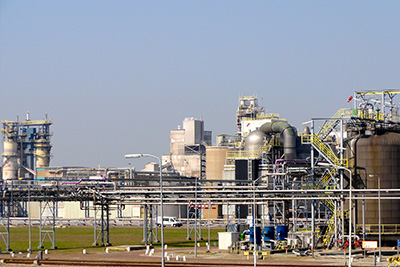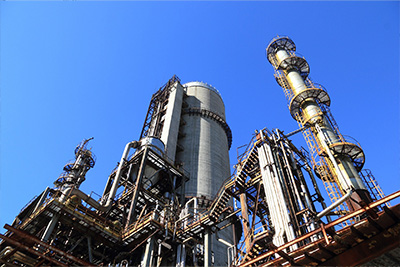-
![Tin Recovery and R···]() 2024-11-27 Tin Recovery and Recycling in Revers···
2024-11-27 Tin Recovery and Recycling in Revers···The article explores sustainable practices for tin recovery and recycling in the reverse ester production process. It highlights the importance of these practices in minimizing waste and reducing environmental impact. The discussion covers various methodologies and technologies employed to efficiently extract and reuse tin, emphasizing their economic and ecological benefits. This approach not only supports a circular economy but also promotes more responsible and sustainable manufacturing processes within the industry.
read more > -
![The Role of Advanc···]() 2024-11-27 The Role of Advanced Filtration in R···
2024-11-27 The Role of Advanced Filtration in R···Advanced filtration plays a crucial role in the production of reverse ester tin by ensuring the removal of impurities and particulate matter. This process enhances product purity, leading to improved performance and consistency. Effective filtration methods can significantly reduce contamination, prolong equipment life, and minimize waste, ultimately contributing to more efficient and sustainable manufacturing practices.
read more > -
![Strategic Insights···]() 2024-11-27 Strategic Insights into Reverse Este···
2024-11-27 Strategic Insights into Reverse Este···This article delves into the strategic management of the reverse ester tin supply chain, highlighting key challenges and opportunities. It emphasizes the importance of efficient recycling processes and the need for robust infrastructure to manage the return flow of materials. The paper discusses innovative technologies and collaborative models that can enhance sustainability and economic viability. By addressing these aspects, stakeholders can optimize resource utilization and contribute to a circular economy in the tin industry.
read more > -
![Evaluating the Imp···]() 2024-11-27 Evaluating the Impact of Tin Purity ···
2024-11-27 Evaluating the Impact of Tin Purity ···This study investigates the influence of tin purity on the esterification process. By varying the purity levels of tin catalysts, the research aims to determine their effect on the yield and efficiency of esterification reactions. The results indicate that higher purity tin significantly enhances reaction rates and product yields, showcasing its critical role in optimizing esterification performance. This finding underscores the importance of using high-purity tin for achieving better catalytic outcomes in esterification processes.
read more > -
![Reverse Ester Tin ···]() 2024-11-27 Reverse Ester Tin as a Catalyst: Imp···
2024-11-27 Reverse Ester Tin as a Catalyst: Imp···The use of reverse ester tin as a catalyst has been shown to significantly enhance reaction efficiency and yield. This catalytic approach allows for better control over the reaction process, leading to improved product outcomes. By optimizing reaction conditions, such as temperature and pressure, the effectiveness of reverse ester tin in promoting chemical reactions is maximized, thereby reducing waste and increasing overall productivity. This method represents a promising advancement in catalysis, offering a more efficient pathway for various chemical transformations.
read more > -
![High-Performance C···]() 2024-11-27 High-Performance Catalysts for Rever···
2024-11-27 High-Performance Catalysts for Rever···This study explores the development of high-performance catalysts for reverse esterification in tin manufacturing processes. The focus is on enhancing catalytic efficiency and selectivity to improve yield and reduce environmental impact. Various catalysts, including metal complexes and organic compounds, were evaluated through comprehensive experimental analysis. Key findings indicate that specific metal complexes significantly boost reaction rates and product purity. These results pave the way for more sustainable and efficient industrial applications in ester tin manufacturing.
read more > -
![Understanding Raw ···]() 2024-11-27 Understanding Raw Material Selection···
2024-11-27 Understanding Raw Material Selection···The selection of raw materials is crucial in the reverse ester tin synthesis process. This study explores the impact of different raw materials on the efficiency and quality of the final product. Key factors considered include the purity, reactivity, and compatibility of the raw materials. The research evaluates various ester precursors and tin compounds to determine optimal combinations that enhance yield and minimize impurities. Results indicate that high-purity raw materials and specific reactive pairs significantly improve the synthesis outcomes, offering valuable insights for industrial applications.
read more > -
![Advanced Chemical ···]() 2024-11-27 Advanced Chemical Processes in Rever···
2024-11-27 Advanced Chemical Processes in Rever···The article discusses advanced chemical processes involved in the production and purification of reverse ester tin. Key steps include esterification reactions, where tin compounds react with organic acids to form esters, followed by purification techniques such as distillation and crystallization to achieve high purity levels. The process emphasizes efficient catalyst selection and reaction conditions control to optimize yield and product quality.
read more > -
![Optimizing Tin-Bas···]() 2024-11-27 Optimizing Tin-Based Catalysts for E···
2024-11-27 Optimizing Tin-Based Catalysts for E···This study focuses on enhancing the efficiency of esterification reactions through the optimization of tin-based catalysts. The research explores various tin compounds and their catalytic performance in esterification processes. Key factors such as reaction conditions, catalyst loading, and substrate specificity were investigated to determine optimal parameters. The results indicate that specific tin-based catalysts significantly improve yield and reaction rates, offering a promising approach for industrial applications. This work contributes to the development of more efficient and environmentally friendly esterification processes.
read more >








